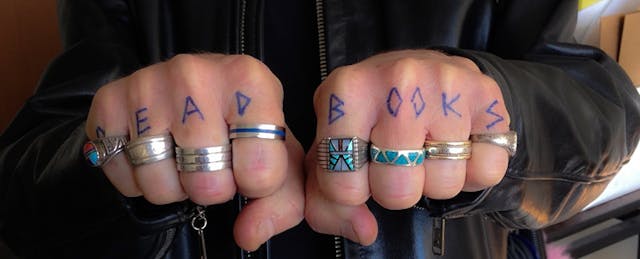Libraries may not be the first vertical that pops into your head when you think about entrepreneurship; however, you may have changed your mind last weekend if you’d been at Mozilla’s Toronto offices for Startup Weekend Library Edition. (This same community also hosted the first Canadian Startup Weekend EDU last August.)
Why libraries? Mostly because five librarians--Helen Kula, M.J. D’Elia, Meghan Ecclestone, Emily Porta and June Avila-- were inspired to bring startup ideas to their library communities.
D’Elia claims, “Librarians rarely talk about customer development, business models, and MVPs and yet these methods would help us build sustainable, scalable and relevant solutions for the communities we serve.” Similarly, Kula also organized this event to “build capacity and connections in a community that has always embraced innovation but doesn’t always have the resources or know-how to create the products or services it wants for its users.”
There’s also the opportunity to step outside of the meticulous nature of library and information science: “It’s a chance to clear away red tape, bypass drawn out approval processes, and skip the needlessly detailed project charters. Pure and simple it is about creating something, says D’Elia.”
And create they did!
Winning Teams
The weekend winner, HUB, tackled an issue of high interest among librarians, particularly those working in public libraries: how to connect library patrons to local organizations and their resources with the goal of truly transforming libraries into community hubs. (Another team MakerLibrary worked on a similar issue of wanting to transform library spaces into community hubs but with a focus on creating makerspaces in public libraries.)
The second place team, Space Valet, focused on helping university students find open study spaces more easily, especially during peak study times. Taking advantage of wifi data and user opt-in check-in’s, the tool helps identify how many students are already in a given space. Space Valet already lined up its first pilot at the University of Waterloo’s Dana Porter Library.
Third place winner, Raisin Readers helps parents find and track early literacy resources, including local library resources and events. The tools even helps parents track the 242 times they’ve read The Very Hungry Caterpillar to their little ones.
The Organizer’s Choice team, Brooklist, focused on the non-trivial problem of uneven book holds: when Oprah announces her next Book Club selection, requests across public libraries increase exponentially. Libraries then have to make decisions about how many additional books to purchase, recognizing that this initial demand will go down. Meanwhile those who place holds on books tend to receive all of them at the same time and they’re unable to finish every book.
One team raised a few eyebrows—Sticky Bookmarks—when they explained that their tools catalog erotic and/or romantic scenes from books. Apparently the how and why of cataloging and tagging erotica is hotly debated among certain librarian circles. That dog-eared edition of Fifty Shades of Grey might have a place in the digital world after all. One judge pointed out that this tool could also be used as a reverse filter for borrowers who don’t wish to encounter such scenes. While some teenagers might appreciate a cheat sheet to the “good parts,” this tool could cross over and collect other kinds of scenes useful for teachers, for instance, exemplary examples of conflict, foreshadowing, or dialogue.
Check out the complete list of eleven participating teams here.
Build Your Own Library
Interested in creating your own library tools? Here are some open library data used by participating teams:
In addition, Bibliocommons co-founder and sponsor, Beth Jefferson, generously opened up her company’s API to any teams interested in access.
Not sure where to start? Organizer Kula also created a list of the “aches and pains of libraries” as a great starting place for inspiration on developing tools to support libraries.
Working Side-by-Side
Judge and mentor David Weinberger, senior researcher at Harvard’s Berkman Center for Internet and Society and co-director of Harvard’s Library Innovation Lab, shared that “it’s always fun to have librarians and technologists in the same room, but having librarians mashed up with business folks for 54 hours was really special.” Weinberger further adds, “It was great to see minds getting twisted on both sides of that equation.”
One of the best outcomes of Startup Weekend Education events: educators working side-by-side with the developer and business communities to solve problems in education. The hope is that all parties understand each other’s worlds better after the weekend.
For the participating librarians didn’t walk away with the entrepreneurial bug, their 54-hour experience will likely influence how they interact with vendors and think about approaching work problems in the future.


